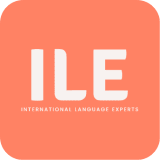This informal CPD article, ‘"Just Google It" - The Impact of Over-Reliance on Google for Knowledge Acquisition’, was provided by International Language Experts, who organise language training for companies and individuals.
In today's digital age, the phrase "Just Google it" has become ubiquitous. The internet, and specifically search engines like Google, have revolutionised how we access information. While this easy access to information is undoubtedly beneficial, it also raises critical questions about the impact on our cognitive processes and the depth of our knowledge. This article explores the implications of relying too heavily on Google for knowledge acquisition and addresses the concerns of what to ask and how to verify the quality of the answers obtained.
The Cognitive Impact of Over-Reliance on Google
The convenience of Google can lead to a superficial understanding of information. Studies have shown that people who frequently use search engines may exhibit reduced memory retention, a phenomenon known as the "Google Effect" or "digital amnesia" (Sparrow, Liu, & Wegner, 2011). When individuals know that information is readily accessible online, they are less likely to remember it themselves. This can result in a knowledge base that is fragmented and shallow, which has significant implications for cognitive development and critical thinking skills.
Knowing What to Ask
A fundamental challenge of over-reliance on Google is knowing what to ask. Asking the right questions requires a baseline of knowledge that allows for critical thinking and problem-solving. Without this foundational knowledge, individuals may struggle to formulate effective queries. Educational psychologist Benjamin Bloom's taxonomy highlights the importance of foundational knowledge as the base for higher order thinking skills such as analysis, synthesis, and evaluation (Bloom, 1956). Without a solid foundation, it becomes challenging to engage in these higher order thinking processes.
Moreover, the ability to ask pertinent questions is essential for effective learning and enquiry. Socratic questioning, a technique used to stimulate critical thinking and illuminate ideas, relies heavily on the questioner's depth of knowledge and understanding (Paul & Elder, 2007). If one's knowledge is limited to what can be quickly looked up online, the capacity for such deep enquiry is significantly diminished.
Verifying the Quality of Information
Another critical concern is the ability to verify the quality of information obtained from Google. The internet is a vast repository of information, but not all of it is accurate, reliable, or unbiased. The ability to discern credible sources from dubious ones is a skill that requires critical thinking and a certain level of expertise in the subject matter. According to Metzger and Flanagin (2013), digital literacy, which includes the ability to evaluate the credibility of online information, is an essential skill in the information age.
When individuals lack sufficient background knowledge, they are more susceptible to misinformation and cognitive biases. Confirmation bias, for example, leads people to favour information that confirms their pre-existing beliefs, often regardless of its validity (Nickerson, 1998). Without a robust knowledge base, it is challenging to critically assess and cross-verify information, leading to the potential spread of misinformation.
The Role of Education and Lifelong Learning
To mitigate the risks associated with over-reliance on Google, it is crucial to emphasise the importance of education and lifelong learning. Formal education provides a structured environment where foundational knowledge is built, critical thinking skills are developed, and the ability to ask meaningful questions is nurtured. Lifelong learning, on the other hand, encourages individuals to continually expand their knowledge and adapt to new information.
Integrating digital literacy into education systems is also essential. Students should be taught not only how to access information online but also how to critically evaluate and synthesise that information. As Lim and Morris (2009) argue, developing these skills is vital for effective learning in the digital age.
Conclusion
While Google and other search engines offer unprecedented access to information, an over-reliance on them can lead to a superficial understanding and critical gaps in knowledge. Knowing what to ask and verifying the quality of information are challenges that require a solid foundation of knowledge and critical thinking skills. Education systems must adapt to ensure that individuals are equipped with the necessary skills to navigate the information landscape effectively. Ultimately, the goal should be to use Google as a tool to complement, rather than replace, one's own knowledge and cognitive abilities.
We hope this article was helpful. For more information from International Language Experts, please visit their CPD Member Directory page. Alternatively, you can go to the CPD Industry Hubs for more articles, courses and events relevant to your Continuing Professional Development requirements.
References:
Bloom, B. S. (1956). *Taxonomy of Educational Objectives: The Classification of Educational Goals*. Handbook I: Cognitive Domain. David McKay Company.
Lim, E. P., & Morris, M. R. (2009). A classification of misinformation on the internet. *Computer Science*, 38(9), 21-27.
Metzger, M. J., & Flanagin, A. J. (2013). Credibility and trust of information in online environments: The use of cognitive heuristics. *Journal of Pragmatics*, 59, 210-220.
Nickerson, R. S. (1998). Confirmation bias: A ubiquitous phenomenon in many guises. *Review of General Psychology*, 2(2), 175-220.
Paul, R., & Elder, L. (2007). *Critical Thinking: The Art of Socratic Questioning*. Foundation for Critical Thinking.
Sparrow, B., Liu, J., & Wegner, D. M. (2011). Google effects on memory: Cognitive consequences of having information at our fingertips. *Science*, 333(6043), 776-778.













